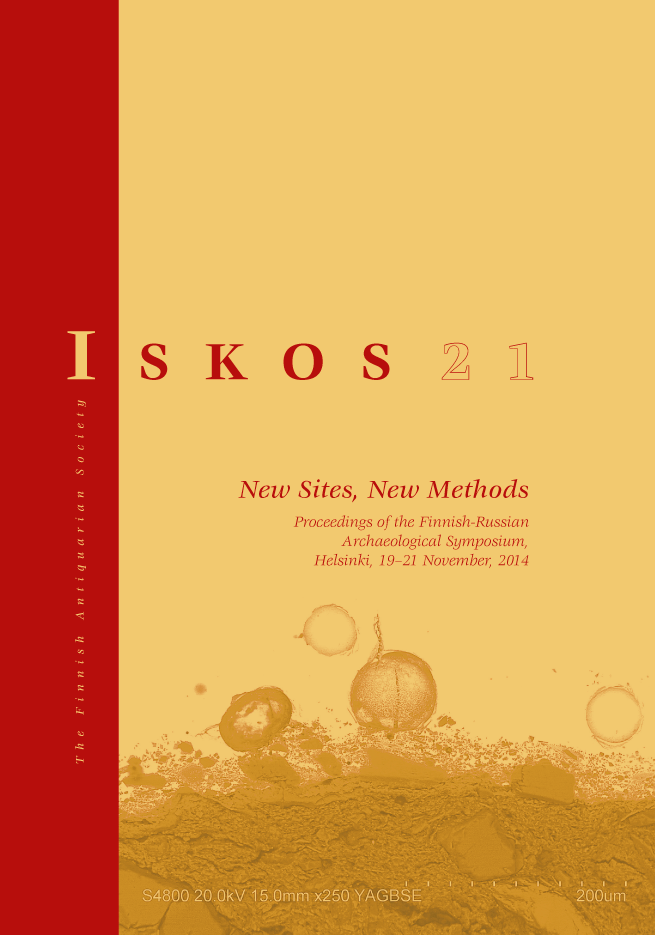Finnish-Soviet/Russian Scientific Cooperation in Archaeology: Results of the Journey 1969–2014
Abstract
After World War II, a Committee for Cooperation in the Fields of Science and Technology between the USSR and Finland was founded in 1955, based on an agreement between the two countries. The committee included a working group for archaeology, founded in 1969, which provided an operational environment for scholarly cooperation: symposia, projects, exchange of researchers, and so on. In Finland, the working group operated within the frame of the Committee for Cooperation in the Fields of Science and Technology of the Foreign Ministry, while in the USSR it operated under the Academy of Sciences. The activities were planned in the sphere of the history of the Finno-Ugrian peoples and their relations with the Slavs, as well as investigations into the ethnogenesis of Slavs, Finno-Ugrians, and Balts in the 1st millennium AD. Also the subject of Russian-Finnish relations in the 8th–14th centuries was involved. The breakdown of the USSR in 1991 terminated the strictly institutional model of cooperation. The Committee for Cooperation in the Fields of Science and Technology between the USSR and Finland, as well as the working groups, were dissolved in 1992. A new organisation, the Commission for Scientific and Technical Cooperation between Finland and Russia, was established. The new situation provided opportunities for a new kind of activity based on a broader multi-disciplinary concept, while, on the other hand, the financing of symposia and other activities met with difficulties because there were no longer any established channels for financing. However, the Academy of Finland and the Russian Academy of Sciences (RAS) took care of the exchange of researchers between our two countries for some time and also provided funds for one symposium held in Helsinki. After 2004, there was a 10-year break in the tradition, as the Finnish party could not arrange a symposium because of various difficulties. Finally, in 2014, a 14th symposium was arranged in Helsinki. This article summarises the activities connected to the archaeological cooperation referred to above.




